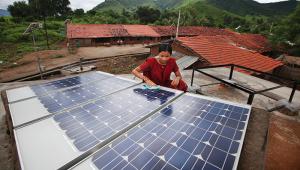By Judith Ugwumadu | 19 February 2015
The Rockefeller Foundation had provided a $1m grant to the World Bank to help it expand the work it does helping cities in developing countries access funding for low-carbon infrastructure.
The City Creditworthiness Initiative aims to improve financial management and enhance the creditworthiness of poor countries through a range of activities, such as training workshops technical assistance and fund raising.
This work then helps cities unlock capital to deliver the infrastructure needed for a ‘climate-smart’ future, the bank said.
Currently, only 4% of the 500 largest developing-country cities have globally recognised credit ratings and only 20% are in local markets, which limits access to private capital.
The grant is a seed funding for a multi-donor trust fund and will allow the World Bank to bring the initiative to five cities over three years. Workshops are set to take place in Kigali, Kampala, and Amman to help cities in Rwanda, Uganda and West Bank Gaza respectively, the bank said. Four creditworthiness training workshops have been conducted since October 2013 in Nairobi, Seoul, Arusha and Bogota, helping 80 cities across 23 countries.
‘In the face of urbanisation, globalisation and climate change, creating infrastructure that builds resilience in cities is more critical than ever,’ said Saadia Madsbjerg, managing director at the Rockefeller Foundation.
Marisela Montoliu Munoz, director of the World Bank’s social, urban, rural and resilience global practice, acknowledged that achieving creditworthiness took time but she said all cities could benefit if they improved fundamentals.
‘The support provided by the Rockefeller Foundation will enable us to help more cities achieve sustainable and inclusive growth in the long term,’ she added.
The bank said that, according to estimates, the investment shortfall in infrastructure is at least $1 trillion globally per year.













